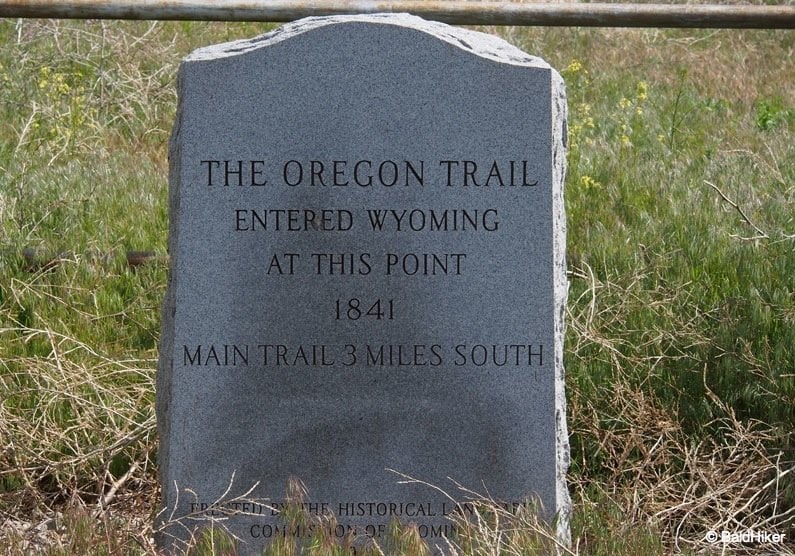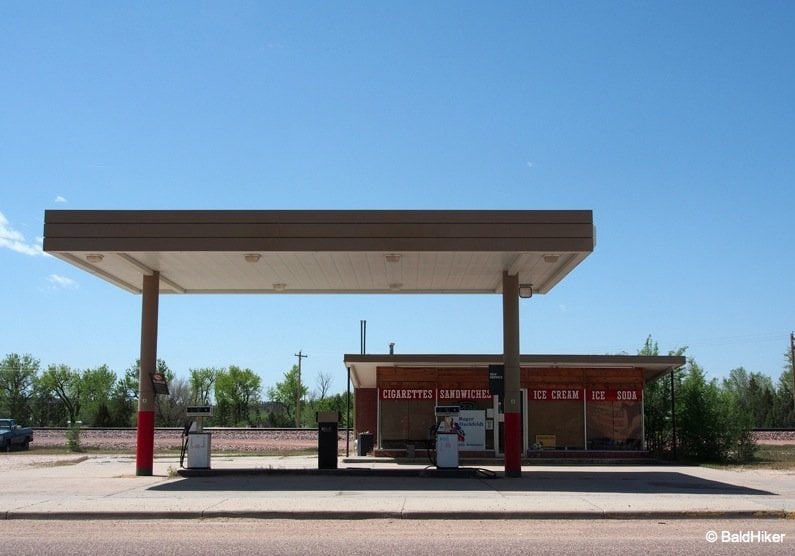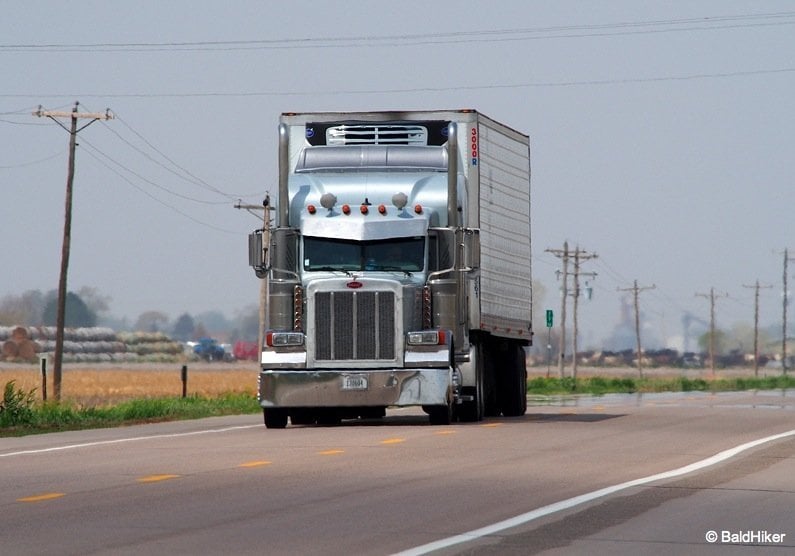The Oregon Trail, one of my most memorable road trips I must say. A 2,200 mile road trip that had me heading west from Independence, Missouri all the way to Portland, Oregon.
Passing through the states of Missouri, Kansas, Nebraska, Wyoming, Idaho and Oregon there is so much history and so many landmarks it is hard to take them all in.
The Oregon Trail and the people that undertook this perilous journey on wagons, in the 19th century, together with those that settled along the way, helped spread the territories of the US to the west coast and may never have happened if this trail had not happened.

In the time of the Oregon Trail, 1840 to 1860, nearly half a million made the journey and it took them up to five months on average but could easily take a whole year to complete.
Of course there were many dangers along the way, much has been made of Native American attacks but by far the biggest killer was disease.
I was undertaking it in the comfort of a car, following as closely as we could the route via the highway.

But if you take the time to stop at relevant places, seek the spots that have the history and meet the people in the know. Then it is a remarkable journey of discovery and learning to undertake.
You can see from the pics here and from the many articles from along the way that even in the modern day it is still an adventure, if not as dangerous. Most of the big landmarks have theor own articles on this site.

We had just over a week to do the 2,200 miles of the Oregon trail and to put that into context that is the equivalent of driving in a straight line from London to Cairo.
But just think of those hundreds of thousands that took on the journey, with no tarmac, no car and people that wanted to kill you situated along the way.
How The Oregon Trail Started
In the early 1800s the United States only went as far west as the Missouri River.
The only people that really headed west in those days were fur trappers due to, amongst many things, high demand from the fashion of mens hats etc. They could make inroads across the tricky terrain as they were only on horseback or on foot.

Anybody wanting to get to the Pacific Northwest at this time took a boat from the east coast, all the way south, around the south tip of South America and back up the west coast. a nightmare sea journey in itself.
The first real attempt to find a proper land crossing was the Lewis and Clarke Expedition of 1804. Yes they found ways there and back but not fit for wagons and very dangerous terrain together with highly likely attacks from native americans. Especially along desert areas and over the Rockies.

Men from the American Fur Company followed and through time and numbers, using old and new tracks, a passable Oregon Trail formed. There was now a possible way across what was known as The Great American Desert.
The Prime Time Of The Oregon Trail
By 1840 there were many tales of the benefits of heading west to the pacific coast. People were encouraged to travel there for their futures. People were told of the promise of a new life, perfect land for their families and for farming.

In 1841 the last settlement west in the US was Independence. 60 people began a hazardous journey across. Then the next year 100 set off, hoping to get to California. They had so many obstacles they ended up in Oregon were half of them stayed.
Each year these numbers grew and grew as more and more were heard to be successful. in 1843, 900 took it on, with livestock. These early pioneers were still having to cut new routes and pass untouched and unknown land.
Throughout the 1840s the temptation to take on the journey increased. Settlers could claim a whole square mile of land in Oregon on arrival, 320 acres for each partner if married. This was a big temptation.

Add onto this the promise of gold in California and the wish to escape persecution by the mormons and you have a lot of will to head west.
The Mormon Trail to Salt Lake City, Utah, used part of the Oregon Trail and so id the California Trail before branching off, heading southwards.
Between 1840 and 1870 around 400,000 people headed west on the trails. Of which around 80,000 headed all the way along the Oregon Trail towards Portland. And half that amount stayed along the way to start populating new lands and settlements like Old Town Topeka.

The Dangers Of The Oregon Trail
By far the biggest killer on the Oregon Trail was disease.
Of the 400,000 heading west, up to 20,000 died along the way. Of that more than half died of disease.
Cholera was a big killer. Camps were often set up by already contaminated rivers. Then bad sanitation and the ahem ‘symptoms’ of cholera adding to the river pollution.
River crossings also contributed to many drownings whilst trying to ford wagons across. In those days nobody was taught to swim.

As more and more travelled then more and more there was conflict with Native Americans. Forts at to be set up along the way like Fort Laramie for protection. However when the civil war started in 1860 the army went away and more attacks happened on emigrants.
Starvation and Hypothermia was common too. Many did not pack their wagons well for the long distance, terrain, miles and temperatures. Think of all that time with a wagon for the whole family and you have to pack food for up to a year, clothing for hot desert as well as freezing conditions as well as all the other things you need.

People were also run over on busy trails as well as accidentally shot by inexperienced gun handlers.
The End Of The Wagon Trail
In 1869 came the death knell for the Oregon Trail by wagons. The First Intercontinental Railroad (Pacific Railroad).
This railroad connected Iowa with San Francisco on the west coast and cut the journey time down to a week.
The advent of railroads can be seen today on the trail at The Bailey Yard, Nebraska, well worth a visit.
Today, the only visible remains of all that wagon traffic is the few km where the stone was imprinted with wagon traffic. An ominous sight like the wagon ruts at Guernsey, Wyoming.
In Film and People
Of course the romanticised scenes of wagons heading west has populated many a western film and TV series.
One famous name who was brought west along the trails as a young kid was Calamity Jane.

But to be honest, everyone who set off in a wagon on that journey could be considered a brave hero.
Driving The Oregon Trail Today
Thinking about all that history, all those people changing their lives forever, really brings home the journey as we travel in an air conditioned car on a highway.
Of course people documented their journeys back then and some natural landmarks made a name for themselves, for example:

The route takes you through some amazing ladscapes from one extreme to the other. You have the flat and big skies of Nebraska where the horizon naver seems to change, and the sat nav tells you the next civilisation is over 500 miles ahead.

The only sound you here is the odd truck you pass honking their horn.

There are also some amazing places to visit and discover that are just a few miles off track or that helped to shape the history of the trail. Or had their own incredible history started due to settlers.
Reservation of The Shoshone Bannock Tribes
But of course some of our best memories of our travels are the people and characters we meet along the way.

Those random sights we see that we never forget. All American diner anyone?

After nearly a week you hit the wide Columbia River and the city of Portland ahead.
Memories made, lots learnt, lots more questions to answer.








